
The term “Turkey teeth” first came to prominence in 2021 with a viral TikTok video, and soon comparable visuals began to surface across all social media platforms. The pictures and videos showed younger patients with their teeth shaped like nails and crowns placed, even though these issues could have been remedied with orthodontics or veneers.
While these images were broadcast on many social media channels and even on television, the criticism was mostly focused on Turkey's alleged inadequacy in the dental field. However, these one-sided broadcasts confused many people who saw Turkey as an opportunity for dental tourism and offered no solution to the problems and victimization.
Turkey Teeth Before After
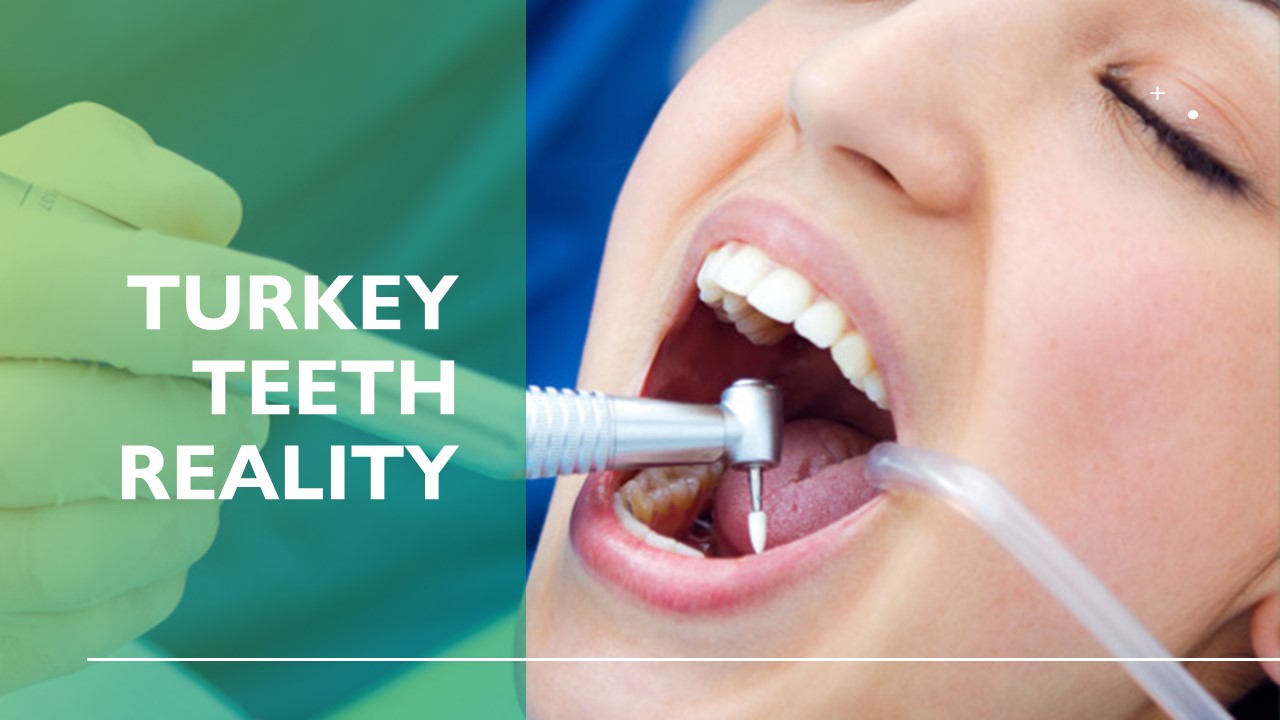
As Antlara Dental, we have carried out dental treatment of more than a hundred thousand people for 20 years. And the vast majority of these patients are our European guests. Our data in Trust Pilot and Google clearly reveals the satisfaction of our patients. I'm happy to say that when you examine the data of other clinics in Turkey, you will encounter a similar satisfaction rate. In their home nations, individuals are unable to find opportunities to attain their fundamental right to happiness due to economic constraints.
On social media, patients are further confused by exaggerating a few pictures that are likely to appear in any country, while the ratings of clinics in Turkey on unbiased review sites show almost flawless values. As Antlara Dental, we present only a few of our patients here and hope that it will help to save you from the 'Turkey teeth syndrome'.
Finally, Hannah's gorgeous new smile free of her old, split teeth, was returned to her. Her skin tone complements the perfect shade of B1, and a smaller profile parallel to her lips complements her teeth and smile well.
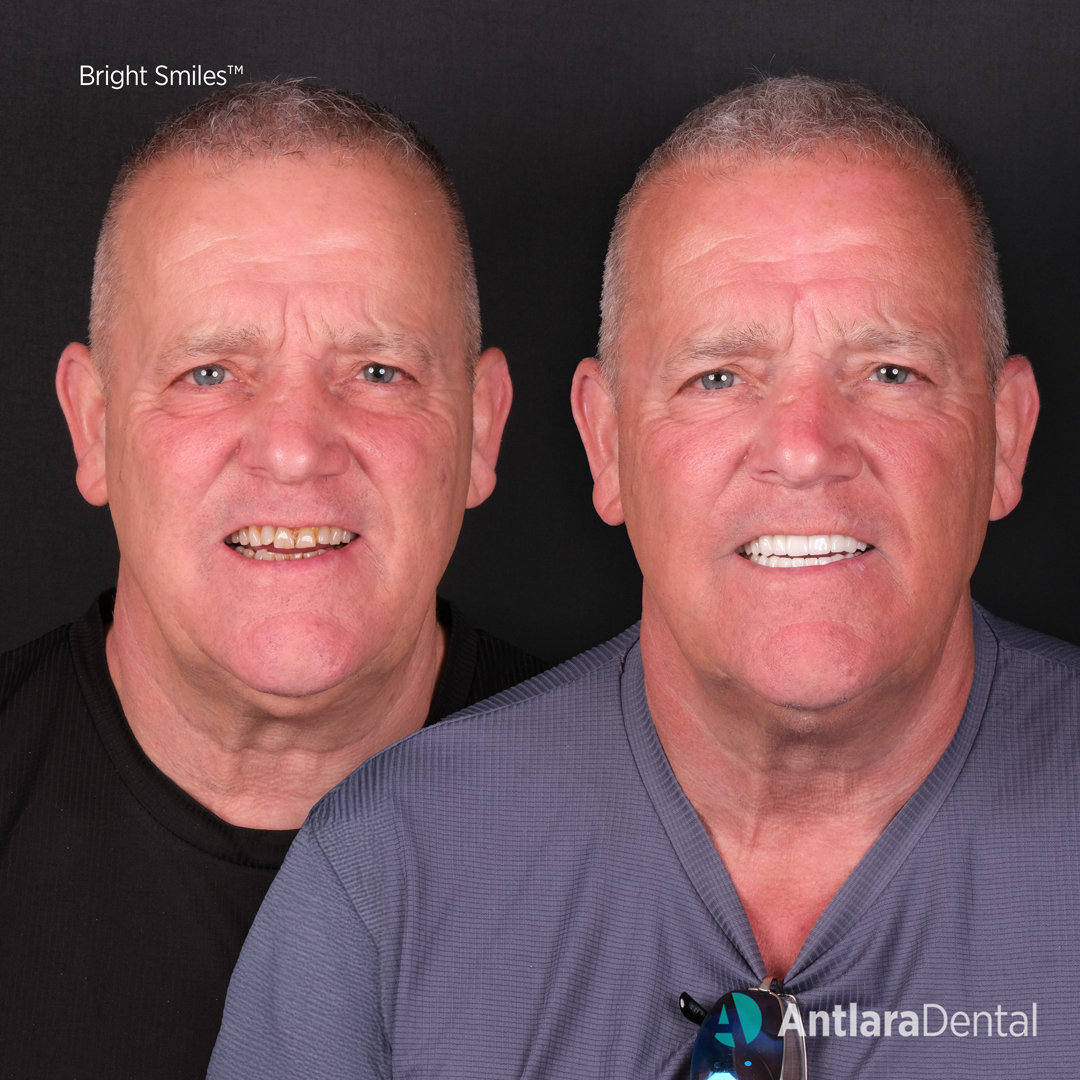
"Antlara Timeless White" is Peter's 1M1 tooth color shade that complements his fair skin beautifully. In addition, his jaw and mouth are well balanced by the proportions of his teeth and smile.
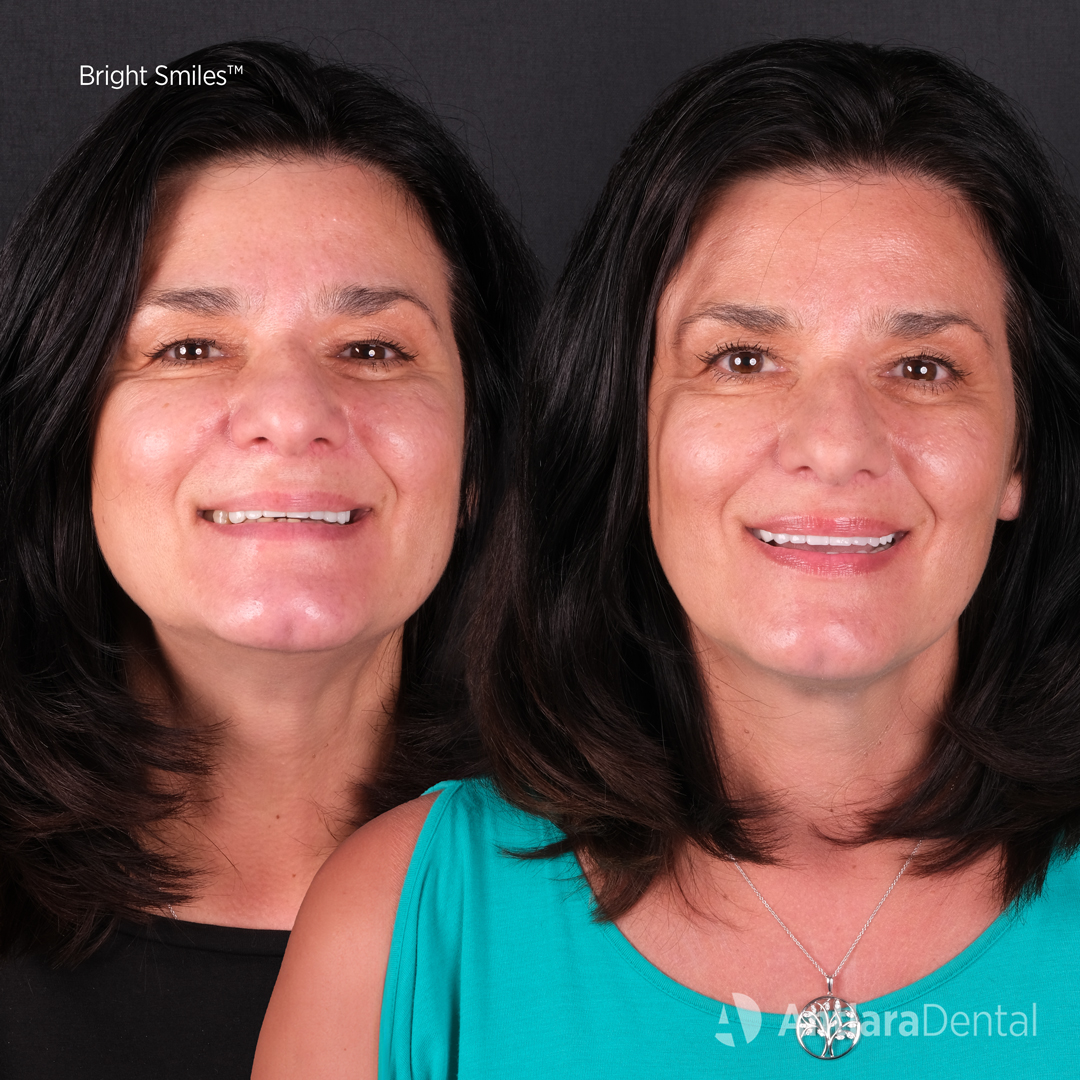
As seen here, the size of our patient's teeth is only slightly elongated, like a replica of the original ones Without drastically altering the patient's bite, the goal of the procedure is to make their smile more attractive. Furthermore, the dental smile design is positively reflected in her lips.
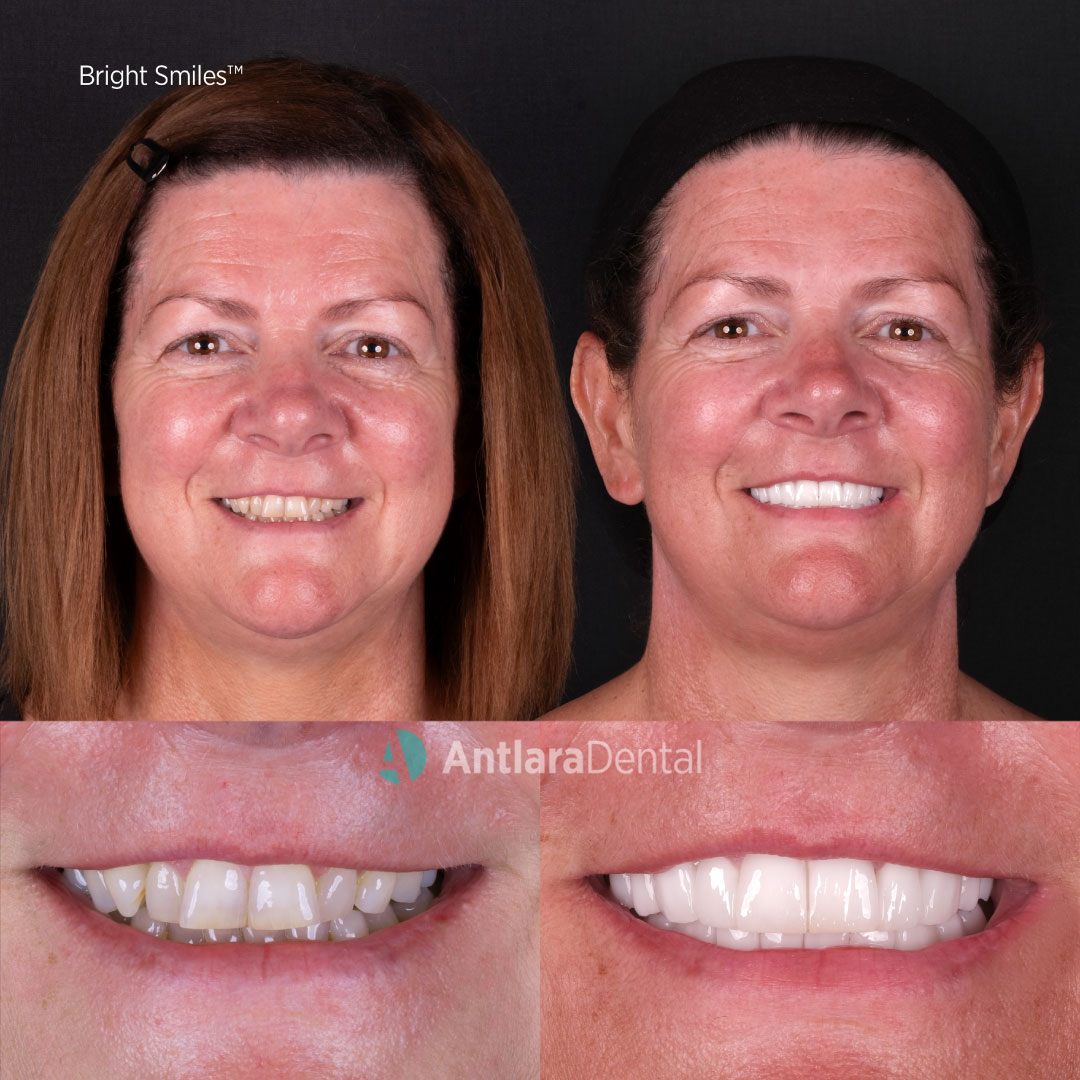
Although our patient's teeth were already visible in his natural smile, we gave it a bit extra glitz and glamour with his new smile. Her BL2 shade accentuates her extroverted cheerful nature
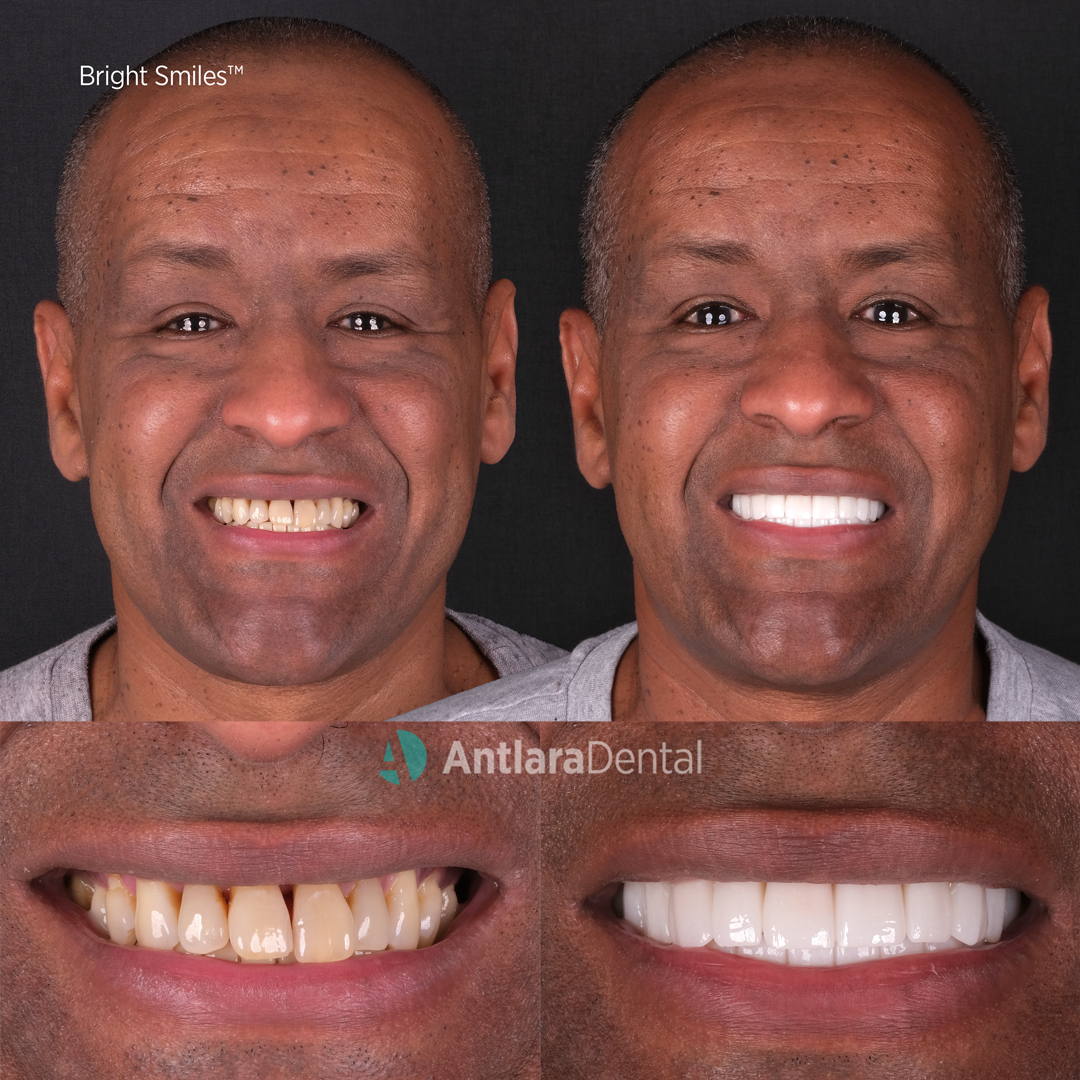
Without drastically altering Amir's natural smile, a design similar to the original has been adopted. You can also observe here that the lip aesthetics have improved along with his smile design.
As Antlara Dental, we have served more than 100,000 patients for 20 years and most of our patients are our guests from Europe. Their satisfaction is evident with our scores of over 4.8 on Trustpilot and Google! Turkey's educational infrastructure and history in the medical sector is a sufficient indicator to prove this. Assuming one does adequate homework, Turkey presents opportunities to people whose country' high prices prevent them from reaching a fundemental dental treatment.
Statistics on Turkey teeth: is dental treatment in Turkey risky or safe?
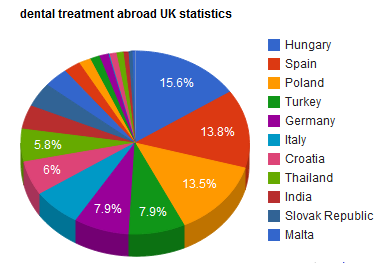
Instead of generalizing the issue as done in these publications, let us localize it and, utilizing numerical data, ascertain whether dental treatment in Turkey is perilous or secure.
The initial data available for numerical evaluation pertains to the age demographics of dental treatment in Turkey. If you look at the Instagram accounts of Turkish dental clinics that cater to dental tourists, you will notice that most of their patients are in their forties and fifties, and very few are in their twenties. Upon examining the before and after photographs of this young group, it is evident that their dental condition necessitates a thorough intervention.
Consequently, it is apparent that the term 'Turkey Teeth' refers to a flawed practice confined to specific clinics and should not be generalized to the entire nation.
The BBC Report: A half-told story
The second piece of information we can look at is a news report from July 2022 that was shown on the BBC. According to this report, a BBC reporter contacted 120 dental clinics in Turkey via phone call, 70 of which agreed to create veneers or crowns, despite her claims that her teeth are perfectly healthy.
Had this narrative not been left unfinished, we would possess significantly more reliable data. The reporter inquires whether the clinics will accept the treatment, and 70 of them provide preliminary approval. However, when you contact a dental clinic remotely, the sales team of the clinic welcomes you first. As the sales team lacks the authority to make final decisions, it is customary for them to refer the patient to the dentist.
Even so, the majority of clinics turned down the reporter's treatment request during the sales team meeting, and the majority of the remaining clinics would likely turn it down at the dentist's appointment as well.
However, as described in the news article, clinics recommended veneers or crowns. Since veneers do not require excessive sculpting of tooth surfaces as crowns do, it would be a wrong inference to consider all of these recommendations as 'Turkey Teeth.'
Customer reviews tell a different story

Another piece of data we can use to evaluate the “Turkey Teeth” phenomenon is the reviews of Turkish clinics on Google, Trustpilot, and What Clinics. Looking at these comments, it is clear that 90% of people are satisfied. This also proves that the victimization in the videos is limited to certain clinics and cannot be attributed to the whole country.
So far, we have tried to prove with evidence why it is false to link the fear of 'Turkey Teeth' to Turkey in its entirety. Assuming that this explanation is enough, we will close this case and move on to another aspect of the problem.
Why do young adults opt for crowns?
The Turkey Teeth idea revolves around the young. The majority of the victims are individuals aged 20 to 25. Let us examine the factors influencing young people's tendencies towards cosmetic procedures.
It is widely recognized that youngsters have recently shown considerable interest in dental treatments. A study reveals that 40% of college students are unhappy with their smiles for various reasons. Because of this, they are driven to seek solutions relentlessly. Having said that, there is an expected longevity for all restorative dental procedures.
The restorations get discolored and stained as they age, necessitating replacement. However, with each renewal, our teeth become weaker and more vulnerable to decay. In the long run, this can lead to far more serious issues. Restorative dental procedures are not a good fit for up-and-comers unless there are serious issues with crowding, decay, or gum disease.
The social media influence: Chasing the perfect smile

In particular, the prevalence of selfies and videos on social media platforms contributes to the desire among young people to improve the appearance of their teeth. Perhaps all this suffering is for the sake of a few well-chosen words, like 'you are so beautiful,' that their loved ones simply do not say. Who knows. Let's whisper more in the ears of our youth that 'you look so beautiful,' regardless of whether they truly are.
Transparency issues: The missing clinic names
Many individuals have been subjected to dental treatment that is either excessive or incorrect, as evidenced by their social media posts. Nevertheless, the clinic's name is typically not disclosed in any of these postings. Clinics want their good results to be widely publicized, but they want to keep their poor outcomes under wraps.
None of the videos that show victims of the “Turkey Teeth Scam” mention the clinic by name. These names should not have been kept secret. So, instead of 'Turkey Teeth,' '..... Dental Clinic Teeth' would have been employed, and the entire nation would not have been defamed as a result of the clinic's error.
Legal rights and government action: A path forward

To date, no applications have been submitted to official authorities in Turkey concerning these grievances. As Turkey has adopted the regulations of the ECHR, a patient possesses equivalent rights to those of patients in Europe regarding patient rights.
Moreover, considering the government's substantial focus on promoting dental tourism in the country, it is certain that rigorous measures will be enacted to address these complaints.
It appears that the sole purpose of continuing to discuss the 'Turkey Teeth' is to tarnish Turkey's reputation, as no official action has been taken to assist the victims, despite the significant attention it has garnered in the media and on social media. Had the issue been localized and the clinic names reported to the authorities and publicized on social media, it might have illuminated a resolution to the problem.
Conclusion: Choosing the right clinic amid dental tourism boom
Following the emergence of dental tourism in 2010 in nations like Thailand, Hungary, and Mexico, numerous issues arose. The most significant issue among these was the rise in profit-driven clinics associated with this new development. Here, it is up to the patient to make the distinction for the right clinic.
